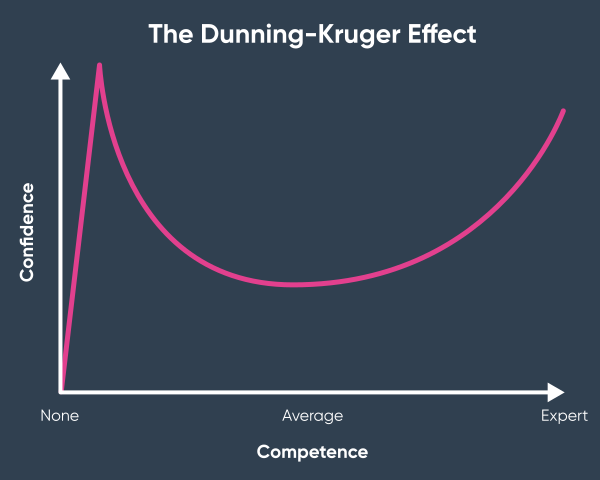ISO 45001 risk and opportunities examples: Tips and ideas
In this article, we outline three key ISO 45001 risk and opportunities examples that could benefit your organization.
ISO 45001 requires you to demonstrate that your business is identifying, assessing and monitoring health and safety risks and opportunities. Too often, health and safety managers are called upon after an incident has occurred. At this point, it's too late, so the standard ensures organizations are more proactive and systematic when it comes to identifying, assessing and monitoring health and safety risks and opportunities.
Three risk and opportunity examples to take advantage of
While ‘risk’ can generally feel like a negative word, taking action to identify them is key to making risks work in your favour. In this sense, turning them into an opportunity for growth and positive change. Below are three examples to meet the requirements of ISO 45001 and improving your overall approach to health and safety.
1: The Dunning-Kruger effect
Health and Safety Consultant David Cant says that when competence is lower, we tend to have more confidence: "Decisions made by less skilled people can have serious consequences, simply because they do not properly understand that their knowledge and experience is incomplete."
This is known as the Dunning-Kruger effect. This is a term used in psychology to describe a cognitive bias where individuals with a limited frame of knowledge on a particular subject or area of specialty overestimate their own abilities. It’s thought to occur because when people are experiencing it, they don’t have the right level of knowledge and experience to recognize this. So, in a way, it’s a bit of a paradox but an entirely human phenomenon that can affect anyone.

How to tackle it:
- Invest in training: Upskilling and keeping your employees’ knowledge up-to-date is key to addressing any knowledge gaps and ensuring competency in the right areas. Health and safety training records can be managed using Ideagen WorkRite.
- Peer checks: Regularly review and maintain oversight of health and safety activity. Use Ideagen’s workflows to send risk assessment results / findings to the wider business to get a complete view. This means that if mistakes have happened, or something has been missed, you can spot it as early as possible and then address any knowledge gaps to make sure everyone knows what action to take.
- Plan a thorough on-boarding process: Be proactive and ensure that all new employees are provided with the right information to get them off to a good start. Give them access to training materials that they can complete and revise in their own time to make it easier to retain the information. Use Ideagen Internal Audit to ensure new employees complete the required training and keep track of dates for review or further training.
2: Implement a process
Before undertaking a new risk assessment, you need to think about your process. How are you going to categorise the H&S management system? What is the scope of your H&S risk assessment? Who needs to be involved?
Start by documenting your health and safety policy. Then you'll be ready to start a SWOT analysis and document each risk. From there, you can build out a comprehensive process to make sure nothing has been missed and that there’s a procedure in place for managing these risks effectively.
Opportunity category examples:
- Technology
- Training
- Audits
- Risk assessments
- Open-door policy
- Staff review meetings
- Staff competency quizzes
- Training matrix
- HR check-ups
- Whistle-blowing tool, such as Kiosk
- Near-miss preventive actions, taking data from our issue module
- Well-being initiatives
- Flexible working / stress management
Risk category examples:
- Fatality / hospitalisation
- Lost time accident
- Minor injury or accident
- Slips, trips and falls
- Incidents or injuries
- Near miss
- Unsafe conditions or unsafe acts
From the above categories, you can do both internal and external research on the risks and opportunities they present. Managing this process is a lot easier when using Ideagen’s EHS software, which provides a unified solution for reporting incidents and managing safety.
3: Control business change
One trap organizations fall into is not embedding important health and safety considerations into a change process. For example, say a department changes a material, supplier, equipment or process, yet they don’t carry out the appropriate assessments by trained personnel. This opens up the possibility for risks to arise and mistakes to occur. For example, not having the appropriate instructions to handle new equipment could lead to an accident, or a new supplier might have different shipping times which leads to delays in getting materials, slowing down your production.
Ideagen’s integrated EHS software makes it easy to identify and assess changing risks and opportunities.
To explore key benefits of implementing ISO 45001 to enhance workplace safety, productivity and organizational performance, check out our white paper, eight key benefits of implementing ISO 45001 in your workplace.
Explore EHS solutions
Build better EHS processes, mitigate safety risks and protect employees with a unified solution for reporting incidents and managing safety.
With 17 years’ experience delivering Health, Safety, Risk, Quality and Environmental software across the globe, Jane understands business health & safety. She is emphatic in her approach with a proven track record of understanding challenges, articulating business needs and demonstrating how to drive performance by providing insightful data. Jane challenges customers to progress from their current state by guiding them in process improvement that results in clear value and educates businesses on how to articulate their data for years to come. Jane is Chair of the Scottish Chamber of Safety and a member of the Management Advisory Committee for Safety Groups UK helping support and deliver health & safety strategies throughout the UK.

